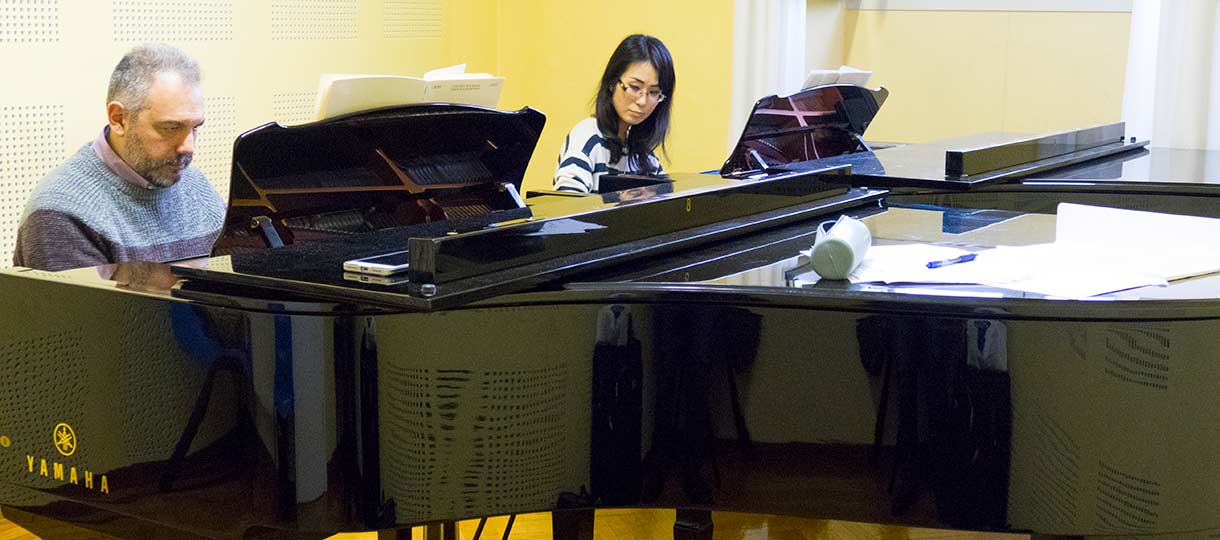Enrico Stellini has won many prestigious competitions and has played concerts for major musical associations, where he has been acclaimed by audiences and critics alike for his originality of espression and the refined tone palette of his interpretation. In repertoire his principal focus is on the Romantics. He is absolutely passionate about teaching (a precious legacy from his experience as a student of Maria Tipo and her renowned piano method) and is very active as a teacher, with excellent results as can be seen by the success of many of his students in piano competitions all over Italy. He is the Chair of Piano at the Paganini Conservatory in Genoa and teaches at the Scuola di Musica di Fiesole music school.
At the Accademia di Musica Enrico Stellini has teached advanced courses in piano. As part of our section A Career in Music, we interviewed him to ask what advice he would give to our students, who are set to become the future generation of music professionals.
What were the key experiences that marked your development and training as a musician? At what time of your life did they take place? Why were they significant?
It may seem strange to hear me say this at 57, but the most important experience of my life will always be the day I met pianist Maria Tipo. I was 12 years old when my parents took me to her so she could hear me play and I still very clearly remember that meeting: what I played, her interest in my talent and how she very gently took my hand and studied it. It was March, 1976, and in September I became her student at the “L. Cherubini” Conservatory in Florence, where I studied with her for 20 long years. Everything I’ve ever done in music, good or bad, I owe to Maria Tipo: from competitions to concerts, to the teaching career that is the focus of my life today. I still feel extremely proud to have been her student, a student of the only great woman pianist Italy has ever produced.
Can you describe one or two turning points in your career? What impact did they have on your career? Why were they important?
The first real turning point was when, still under the guidance of Maria Tipo, I was accepted as a student at the Conservatoire supérieur de musique in Geneva, where I studied for three years and was awarded the Premier Prix de Virtuosité. After completing my Diploma at the “L. Cherubini” Conservatory, I went though a moment of crisis and was actually almost thinking of giving up music. But a telephone call from Maria Tipo convinced me to take up my studies again with renewed energy and to attend her advanced course in Ravenna. Unfortunately, I didn’t do so well at the course; my excellent first lesson was followed by two performances that were so mediocre that Maria Tipo decided not to send me to the entrance exam for Geneva. But an unpleasant situation arose in my family that made me decide to try the audition all the same, since it would be an important experience and a way of … getting away from home. I played very well and when we were waiting for the results we didn’t realise that they were calling out the ranking in reverse order, and I came (I thought) … last. So I passed the selection and set out on my new path with great enthusiasm Another very important moment in my life was when I got a permanent teaching position at the conservatory. I had been slogging away for years, trying to get through the maze of regulations and endlessly changing curricula and qualifications required for teachers, so that it seemed as if I would never get there.

Often our mistakes teach us important lessons. If you could go back in time in your career what would you do differently?
After winning at Osimo I would have organized the competitions I entered for differently. I had a very good programme that I played really well but that I was not taking full advantage of and I was unprepared to organize my career: I should have entered as many competitions as possible, starting from the minor ones.
Along a musician’s career path there are always many important decisions to be made and these often depend on and result from the opportunities that are offered to them. What helped you to stay focused and not to lose sight of your goals?
My love for music … a constant in my life from the age of 7, when I began to sing in the children’s choir of my city, and from when I was almost 10, when I began learning the piano. I never ever thought that I would do anything else with my life, other than being a musician.
Apart from studying with great passion and dedication, what advice would you give to young musicians who are starting out on a career in music?
I would advise them to be completely open-minded, 360 degree vision. Today, more than ever, you have to realize that more and more people are performing at a very high level and, also considering the emergency we’re living through, there are fewer and fewer opportunities to play in public. So it’s very important to have a broad music culture so that you are able to understand what other competences you can offer besides performance, competences that could in time become your primary focus. Several years ago two students of mine graduated with maximum grades and both have found other pathways through which to express their passion for music: today one of them is the artistic director of the Richmond orchestra, while the other has a fellowship at Cambridge and is a recognised expert on Verdi.
__________________
